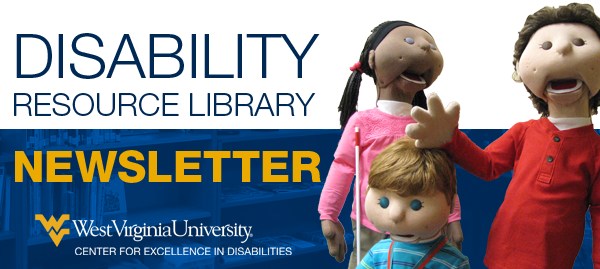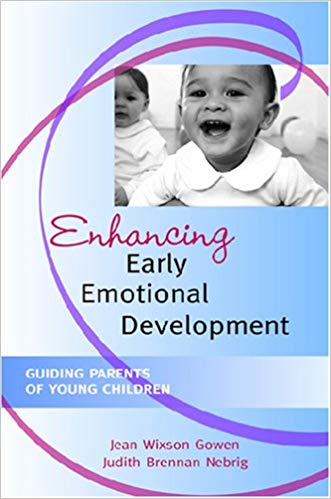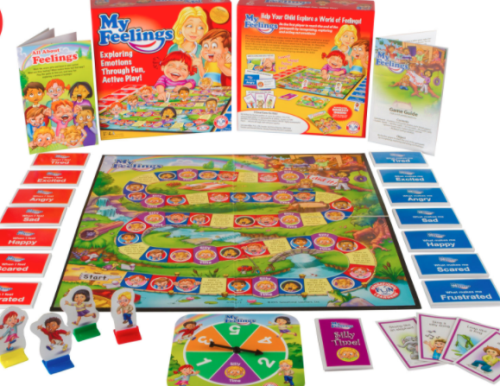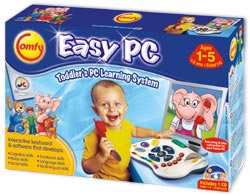
Mental Health
Maintaining good mental health is a challenge faced by many families and children. As early as the 1800’s, experts believed that mental health was intertwined with the management of our bodies, including exercise, rest, food, clothing, climate and shelter. Children’s mental health is just as important as their physical health. As parents, it is vital to teach our children the skills needed to face many different challenges in their lives. Teaching children how to recognize and manage their emotions and feelings while teaching them resilience can set a foundation for a more stable mental health outcome. Parents often know how to fix a child’s scrapes or cuts, or how to nurse them through the cold or the flu, but parents can sometimes struggle when managing panic attacks or the effects of extreme anxiety, stress or fear.
Fortunately, there are many resources available that can empower parents on how to teach children to deal with difficult emotions, body image, anxiety, bullying and more. It is important to have the tough conversations with your children early so you can help them be mentally healthy, safe and happy. Make a habit of checking in with your children often and asking open-ended questions (questions that encourage a full response instead of just “yes” or “no”) to keep the conversations going. If your children will not talk, see if they will compromise. Let them know you are there for them and that you care, and see if they will set a time that would be better to try to talk again. It helps if children feel some control and can choose when to engage and discuss how they are feeling.
Do not be afraid to reach out for help for mental health resources for your child or family. There are mental health crisis helplines, online programs and workshops for parents, schools, caregivers, mental health education and treatment programs in hospitals, public health clinics and universities, and many other agencies in your communities. Taking the time to reach out and ask for help is the first step in helping you, your children and your family lead mentally healthy lives.
Featured Resources
Browse more featured resources available to borrow from the DRL:
https://vll.cedwvu.org/.Enhancing Early Emotional Development: Guiding Parents of Young Children

Jean W. Gowen & Judith B. Nebrig
This book gives an in-depth look at children's emotional development at five stages from birth to 24 months. It also examines challenges to effective parenting, including substance misuse, mental illness, poverty and lack of social support. Other topics include developmental guidance, speaking for and through the baby, and using reflective questions. Parents can learn from realistic vignettes that demonstrate appropriate interactions and interventions for a diverse range of parenting issues.
The Anti-Bullying and Teasing Book for Preschool Classrooms
Barbara Sprung and Merle Froschl
Teasing and bullying can affect a child's learning, physical health and emotional well-being. This book uses activities, the classroom environment and family involvement to develop empathy in children and create a climate of mutual respect in the classroom. With over 40 activities that address feelings, teasing and bullying by cultivating friendship, community and positive feelings, teachers of young children can create an environment in which all children feel safe, comfortable and welcome.
More Than a Mom - Living a Full and Balanced Life
Amy Baskin and Heather Fawcett
This book is a lifeline of information and advice for mothers who have children with developmental or physical disabilities, mental health or learning issues, or chronic medical conditions. With the authors' skillful blend of research, personal experience, and feedback from over 500 mothers across the United States and Canada, this book will help you cope, adjust and find the inspiration to make your daily life easier and more fulfilling.
Featured Technology
Browse featured technology to borrow from the DRL: https://vll.cedwvu.org/.
My Feelings Game: Exploring Emotions

Sensational Learners (Ages: 4 years and up)
What scares your child? What makes them happy, frustrated or angry? This inspirational game encourages you and your child to explore these emotions in fun, active, and sometimes very silly ways. The game features seven basic feeling that players will first identify, then explore by drawing cards. As they play, children discover how to recognize feelings in themselves and in others, and to cope with them in socially appropriate ways.
The Comfy Easy PC System

This game for ages 1-5 comes with a special keyboard, a cable to allow easy plug and play connection to your home PC and a First Steps software CD. You can select different software games for your child based on their age and skill level.
Navigation
Educators are often on the front lines of dealing with children’s mental wellness. Kids spend a lot of their time at school, so it is no surprise that school can have an impact a child’s mental health. Parents can expand their connections outside of their child’s teacher in the school setting. This list includes other school staff that may be available to help your child. Your child’s pediatrician or healthcare provider can also guide you to resources outside of the school setting – your child’s doctor may even have a mental health provider in their office.
- School psychologist: They have knowledge in mental health, academics and behaviors. School psychologists often collaborate closely with the school team to monitor your child’s progress, help set educational goals and provide resources to help meet their educational needs.
- School nurse: The school nurse can help provide school-based health care services. The nurse can give medications, provide health screenings, communicate with the child’s physician and educate the school staff on health conditions. If your child has a chronic health condition, reach out to the school nurse and include them in the IEP process if possible.
- Mental health therapist: This can be a licensed clinical social worker or licensed counselor. They can be school staff or work for an outside mental health agency and can visit the school a couple times a week or provide therapy off campus.
- School counselor: They communicate with students and families to help guide educational goals and address concerns. School counselors are different from mental health counselors so they may recommend or give resources to connect you with a therapist if there is a concern for your child. Guidance counselors help high school students prepare for college, find jobs or help them transition to independent living.
- Social workers: Social workers provide resources for students and their families. They can help find resources for housing, food, employment, and financial assistance. They work with families and the school to make sure they can find the resources needed and help the student be successful.
Featured West Virginia Resources
- West Virginia DHHR Bureau for Behavioral Health: BBH’s mission is to serve the people of West Virginia by collaborating with strategic partners to advance access and quality of statewide behavioral health to empower each West Virginian to reach their potential.
- 844 HELP 4 WV: HELP4WV offers a 24/7 call, chat and text line that provides immediate help for any West Virginian struggling with an addiction or mental health issue. Call or text 844-435-7498.
- West Virginia Behavioral Health Providers Association: The Association's members are behavioral healthcare provider organizations serving recipients in each of the State's 55 counties. They are committed to creating and sustaining healthy and secure communities. Vital to this commitment is a network of organizations and advocates promoting services of unparalleled value.
- WVU CED Mental Health Services: Individuals with at least one reported disability, their families or providers who serve them or individuals who are at risk for a disability may be eligible for group counseling, virtual counseling, family counseling, mental health promotion consultation and resourcing.
Child's Champion:

Regina Scott
Regina is a project manager for Family Centered Care at WVU Medicine Children’s Hospital. Regina is a physical therapist by trade, with 15 years of patient care in the hospital setting. She joined the WVU Medicine Children’s team during the week the new hospital opened in September of 2022. Regina feels her greatest accomplishment in her role with helping children, and in her life, is her daughter. Her daughter spent many months at WVU Medicine Children’s years ago, and Regina was invited to talk about her experiences with the Children’ s team and the international Vermont Oxford Network (focused on care for premature infants). Her family’s lived experience with a critically-ill child helped shape everything she does in her current role at Children’s.
Regina was born and raised in West Virginia and recognizes that not everyone has the healthcare or support they need. She feels it is vital to work towards improved access to all healthcare services that families and children may require. Regina works towards empowering parents and caregivers in their role as their child’s advocate and first teacher in shaping the child’s mental, physical and emotional health. She feels her greatest impact on society is helping others in any way she can with a servant mindset. Regina tries to demonstrate kindness, empathy and compassion to be a force for good in the world.
Regina’s goals for the next 5-10 years will be to continue finding new and helpful ways to serve all those who utilize WVU Medicine Children’s, no matter what her position or setting. A few of Regina’s interests include spending time with family and friends, singing, musical theater, traveling, trying new recipes/food and learning about history. One of Regina’s favorite quotes comes from Mr. Fred Rogers: “We live in a world in which we need to share responsibility. It is easy to say it is not my child, not my community, not my world, not my problem. Then there are those who see the need and respond. I consider those people my heroes.”
References:
John Hopkins Bloomberg School of Public Health-Dr. Mandell 1995 article: Origins of Mental Health: https://publichealth.jhu.edu/departments/mental-health/about/origins-of-mental-health
The Kids Mental Health Foundation: https://kidsmentalhealthfoundation.org/mental-health-resources
The Kids Mental Health Foundation: How to Partner with Schools (November 2022) Accessed 5/20/2024: https://www.kidsmentalhealthfoundation.org/mental-health-resources/school/how-to-partner-with-school
